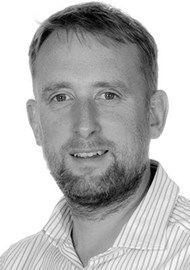I have recently completed a three-year MA in medical education at the University of Winchester, which has been an edifying experience. The following article may appeal to readers who are considering such a venture.
I have been a consultant for six years and have always considered education to be my primary ‘extra’ (additional to clinical work) interest. Having settled into my post I also realised that I missed some of the intellectual stimulus we get in our training years from activities such as research and exams. I was aware from colleagues of the course in Winchester and signed up with half of my fees (£2000 p.a.) being paid by the Wessex deanery.
For the first two years, myself and 10 other medics from various specialties, met with tutors on Friday mornings to discuss educational topics and set readings. The modules covered were: professional development; assessment; curriculum; and research. For the final year I prepared and wrote up a 20,000-word dissertation: my chosen subject was the differences between medical and educational research. The course was set up in 1997 in response to a request from doctors wanting to sit for a higher degree in education. Being an MA (as opposed to an MSc) and led by educationists (rather than medics), the content and style of teaching have been somewhat ‘softer’ than I have previously experienced, and there is a declared intent to challenge, and potentially reconstruct, certain aspects of our intellectual thinking. Thus, we have questioned whether we are blinkered in our belief that ‘evidence’ of how we practise (as doctors and educators) should come from quantitative studies which don’t consider the complex relationships between: doctors and patients; trainers and trainees; patients and disease; and students and learning.
We have discussed whether current assessment tools are fit for purpose. And, we have considered where and when learning should take place: are we best learning renal anatomy on a cadaver 20 years prior to performing a partial nephrectomy or on a simulator in our operating theatre the week before?
The course, then, at its heart is philosophical, and in the same way that a history of medicine diploma can contextualise contemporary practice, so this considers what we do in ethical and societal terms. Much of what was discussed concerned the role of the professional (Aristotle came up a lot!); with an emphasis on the moral issues associated with judicious practice. There was much consideration too of research ethics and governance. There were also many opportunities to consider practical issues: much of the pleasure from the course was derived from being outside the work environment, discussing ‘stuff’ with other motivated colleagues.
And much of what I ‘learnt’ came from considering at a distance what we do on a day-to-day basis. The GPs, for example, were surprised by the presumption amongst hospital doctors that we can (and should) all teach – they, of course, declare themselves as trainers and are resourced accordingly. Ultimately, though, I have realised that education like any other aspect of our professional behaviour needs due time and consideration. I’ve learnt qualitative research techniques to augment quantitative methods to enquire into my own educational and clinical practice. This introspection may be somewhat alien to those of us who feel that we should all concentrate research activity to develop broadly applicable solutions to generic problems. However, an equally valid aim for many of us may be to consider directly how effective our individual / institutional performance is for our patients and students.
I would recommend a course such as this (there are several run throughout the country) to anyone who wishes to take a step back from the privileged but intense work that we do in order to consider the role of the doctor and medical educator, and stimulate rejuvenation in his/her own practice. “We have considered where and when learning should take place: are we best learning renal anatomy on a cadaver 20 years prior to performing a partial nephrectomy or on a simulator in our operating theatre the week before?”
Declaration of competing interests: None declared.





